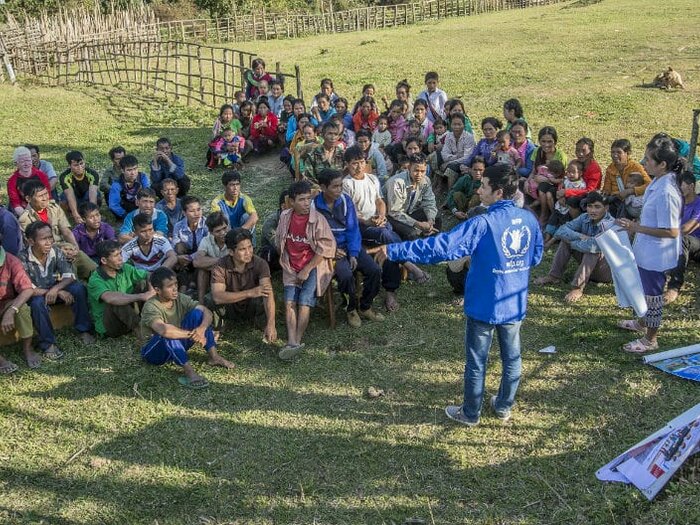Despite a strong global commitment to Sustainable Development Goal 2 (SDG 2): Zero Hunger, evidence shows that the number of hungry people in the world is increasing. This is in large part due to conflict, which uproots people and disrupts their livelihoods, making it more difficult and costly for them to access or produce food. Climate change also plays an important role in exacerbating food insecurity globally, as it makes natural disasters more frequent and intense, with significant impact on the ground.
In this evolving scenario, business as usual is no longer an option for the World Food Programme (WFP). The urgent and lasting solutions needed to achieve Zero Hunger require changes in policy and practice at the global, regional, national and local levels. WFP actively advocates for these changes – including in various platforms and forums such as the World Economic Forum, Nutrition for Growth, G7, G20, the United Nations General Assembly, the High Level Political Forum and others – to promote quick and appropriate humanitarian response, ensure access to safe, nutritious and sufficient food, build resilience, provide food security, promote inclusive economic growth and development and advance the SDGs, particularly SDG 2.
Informed by our programmes on the ground, WFP’s advocacy leverages the organization’s policy, research, and programmatic expertise in both the humanitarian and development sectors to address the root causes of food insecurity and barriers to achieving Zero Hunger.
WFP’s areas of focus for advocacy include Zero Hunger, nutrition, climate change, conflict, humanitarian access, school feeding and children’s nutrition, cash transfers and social protection, innovation, gender equality, women’s empowerment, empowerment of smallholder farmers, agricultural, rural and local economic development, and food waste.
WFP advocacy priorities for reaching Zero Hunger
-
School feeding
-
WFP believes that all children, especially the most vulnerable, have a right to receive food in schools to ensure that malnutrition and hunger do not hinder their education and human capital development. WFP draws on its experience implementing school feeding programmes in more than 100 countries over the past six decades to advocate for policy and practice change that will allow it and other partners to reach the 73 million school-aged children living in extreme poverty who are currently not receiving food at school.
-
Decade of action
-
WFP’s advocacy efforts will support the Decade of Action for Delivery called upon by the UN Secretary-General, António Guterres. The Decade of Action for Delivery aims to mobilize governments, multilateral agencies, civil society, the private sector and the UN system to identify solutions and make stronger commitments to reach the SDGs by 2030. WFP’s advocacy efforts in this regard will aim to sustain global attention and political momentum to advance the attainment of the SDGs by 2030, highlighting successful policies and practice, promoting ambitious partnerships and innovative solutions that can collectively tackle barriers to the attainment of SDG 2 (Zero Hunger) by 2030.

